Welcome summer, welcome mangoes. Is there anyone among you who dislikes mangoes, the king of fruits? I doubt. Indian summers can get so hot at times, that you wouldn't be able to bear the heat even for minutes. You can feel the heat and sweat running through every part of your body. Back in Mangalore, summers are terrible. Infact, we often say that Mangalore has just 2 seasons, one Monsoon and second Summer. There is no winter in this part of the country! The moment sun shines on the city, it gets sweaty, hot and humid. Traditional tiled roofs do beat the heat to certain extent. Surprisingly, this part of the country is still green and healthy, thanks to the humidity. And with March-April coming through you are sure to find branched trees bearing fruits.
This takes me back to my nostalgic moments spent in Byndoor, a small coastal village in Karnataka, where we would go to maternal grandparent's place for summer vacations. A lovely small village with a palatial old tiled-roof bunglow in the centre of an acred green area, an old well at one end, a nice huge dung laid courtyard, the house surrounded by green vegetation with all kinds of trees including mango, chikku, pineapple, brahmi, tomatoes, loads of coconut trees and many others. I still recall the time when grandparents would scare us from going to the backyard of the house fearing cobra snakes and other animals residing there. Summers meant treating ourselves with lots and lots of mangoes, all from our very own backyard garden. Breakfasts with dosa and maavina rasayana (mango kheer), lunch and dinners had other mango variations like rice with appe huLi, mavinkai gojju, mavinkai sasime, amTi, etc. And no matter how many times mangoes were used on a daily basis we would never tire eating them in any form. That was the magic of mangoes.
In this heat, what can be a better way of soothing yourself other than mango. Welcome summer and you are sure to be greeted with Appe HuLi in most Havyaka homes. This is one of the A Havyaka delicacies and is very common in most of our kitchens. Here, I share with you the recipe for Appe HuLi as made by my amma.
This sweet, sour and spicy raw mango soup will leave your taste buds tongue tickling for more.
Photographs updated dated 3rd June 2013
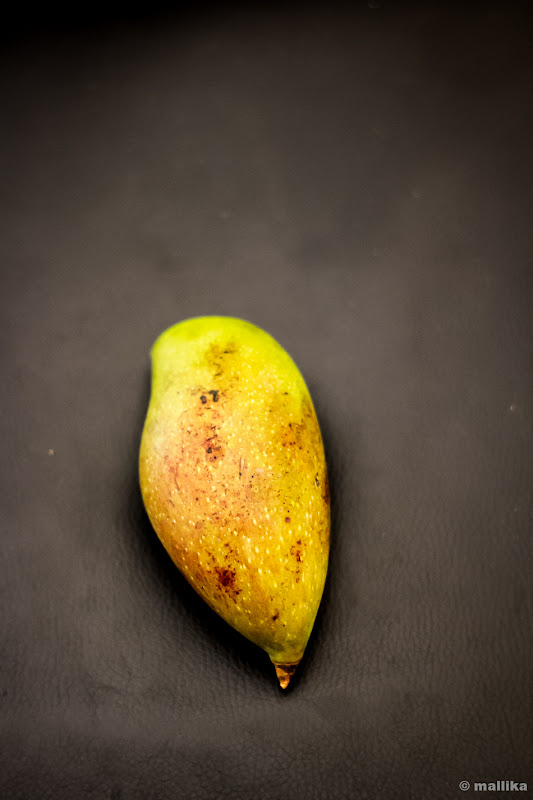
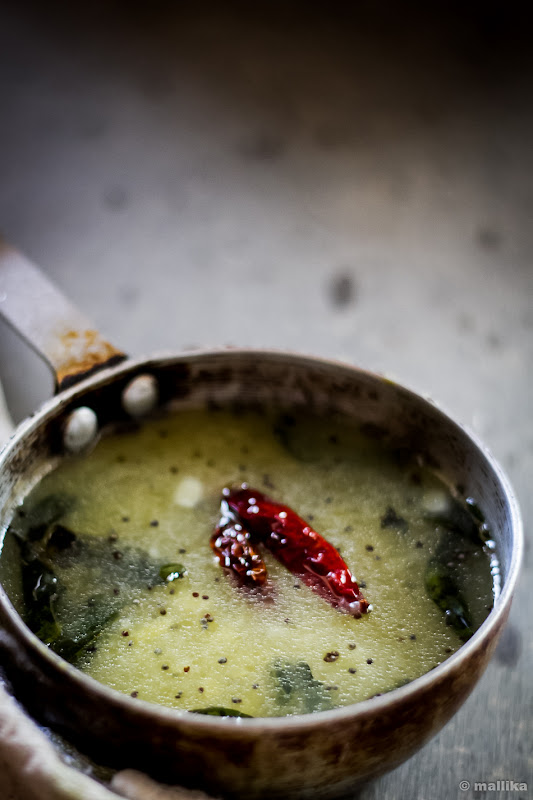
This takes me back to my nostalgic moments spent in Byndoor, a small coastal village in Karnataka, where we would go to maternal grandparent's place for summer vacations. A lovely small village with a palatial old tiled-roof bunglow in the centre of an acred green area, an old well at one end, a nice huge dung laid courtyard, the house surrounded by green vegetation with all kinds of trees including mango, chikku, pineapple, brahmi, tomatoes, loads of coconut trees and many others. I still recall the time when grandparents would scare us from going to the backyard of the house fearing cobra snakes and other animals residing there. Summers meant treating ourselves with lots and lots of mangoes, all from our very own backyard garden. Breakfasts with dosa and maavina rasayana (mango kheer), lunch and dinners had other mango variations like rice with appe huLi, mavinkai gojju, mavinkai sasime, amTi, etc. And no matter how many times mangoes were used on a daily basis we would never tire eating them in any form. That was the magic of mangoes.
In this heat, what can be a better way of soothing yourself other than mango. Welcome summer and you are sure to be greeted with Appe HuLi in most Havyaka homes. This is one of the A Havyaka delicacies and is very common in most of our kitchens. Here, I share with you the recipe for Appe HuLi as made by my amma.

Appe HuLi | Appe Saaru
INGREDIENTS
2 raw mangoes
1 tsp jaggery (or as per your taste)
Salt
1 tbsp Oil
3-4 dry red chillies
1 tsp Mustard seeds
4-5 Curry leaves
A generous pinch of Hing/ asafoetida
DIRECTIONS
Cut the mangoes roughly and cook them in boiling water. Once cooked, squeeze the pulp off the peels and seeds and mash them. Bring this pulp to a boil and add water if you prefer it thinner. Add salt and jaggery as per your taste. This depends on how sour or sweet the mango is. Prepare the tempering. Heat oil, add mustard seeds, curry leaves and a generous pinch of hing. Add to the boiled broth and switch off the heat. Serve with rice or as it is.
This sweet, sour and spicy raw mango soup will leave your taste buds tongue tickling for more.
Photographs updated dated 3rd June 2013

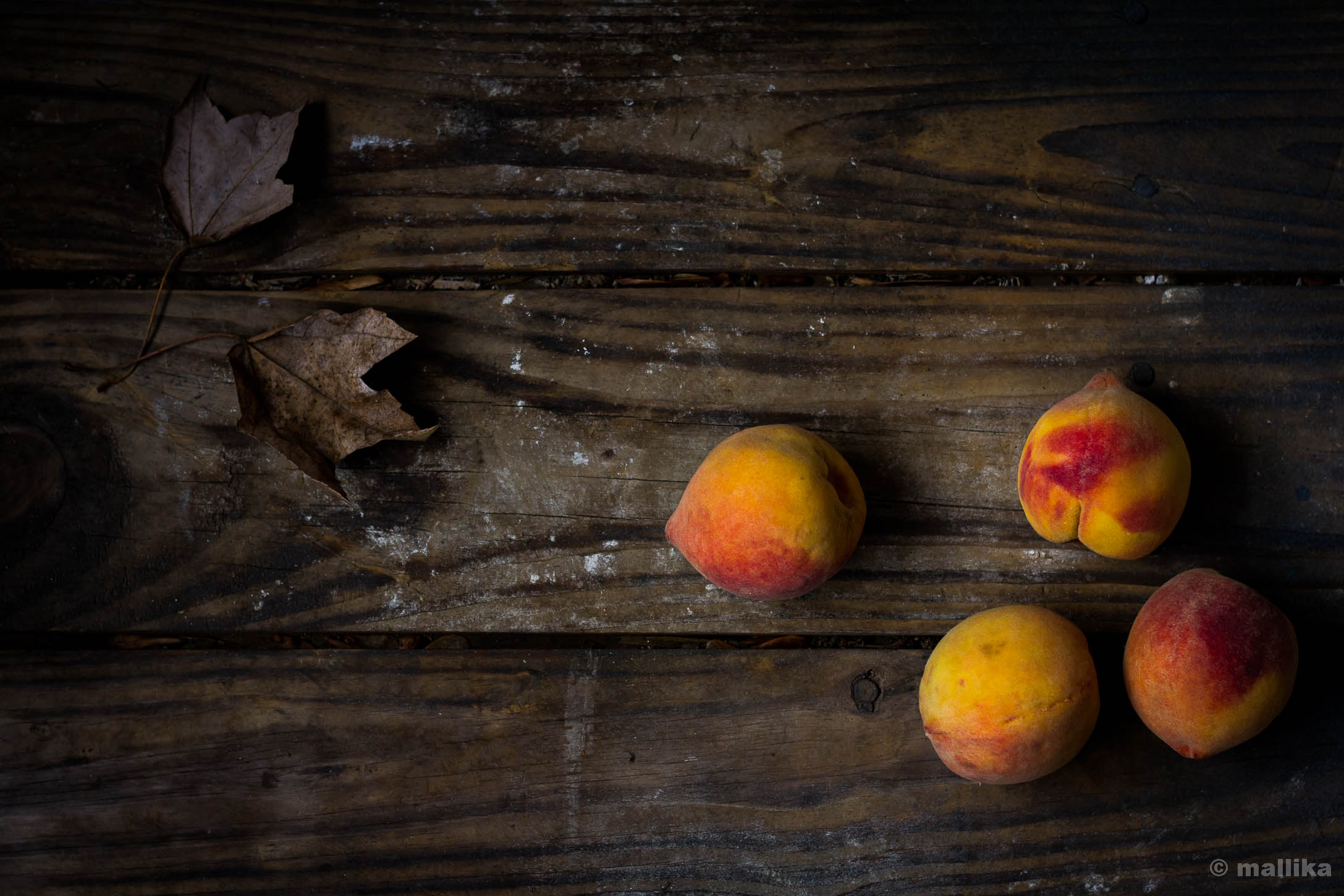
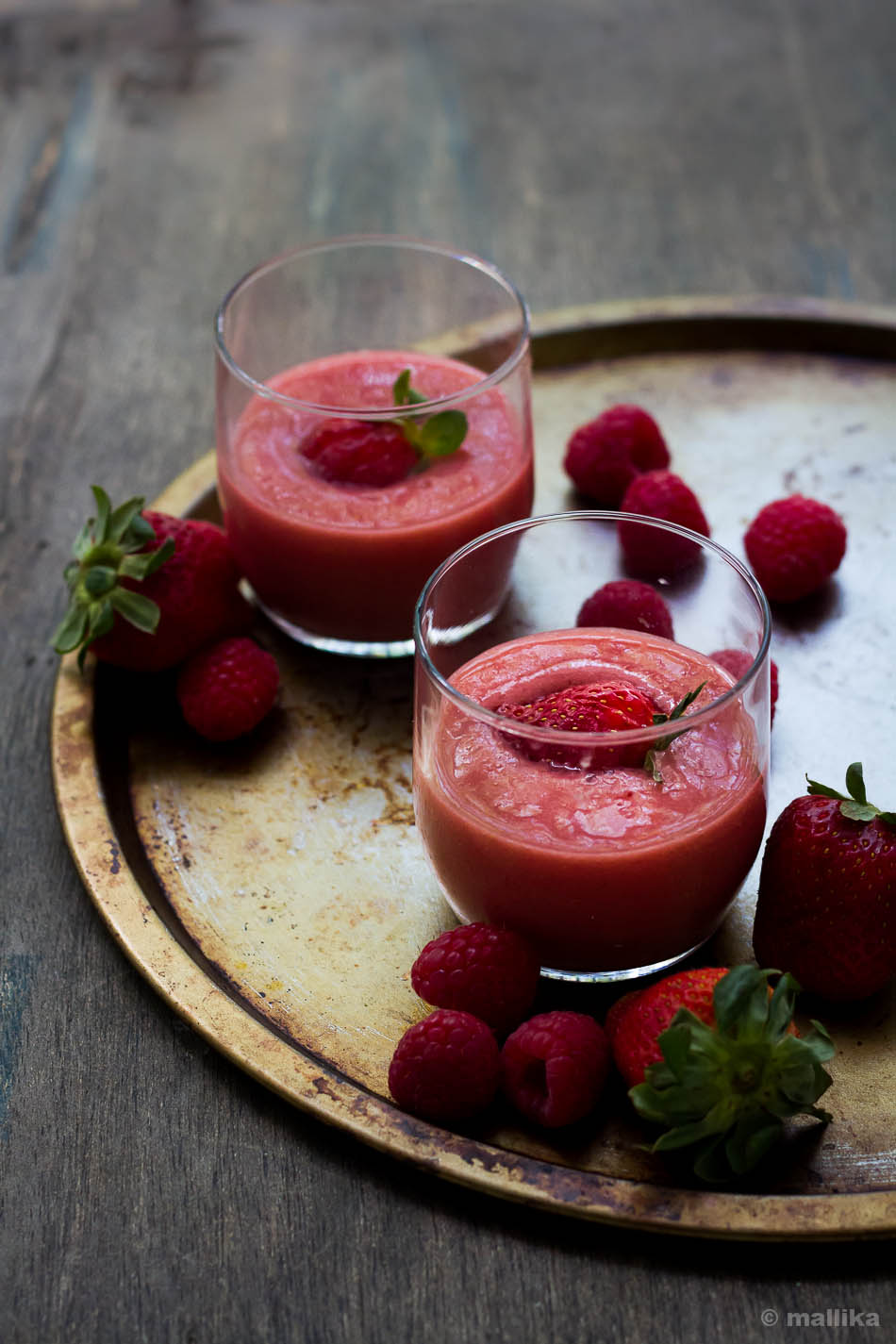
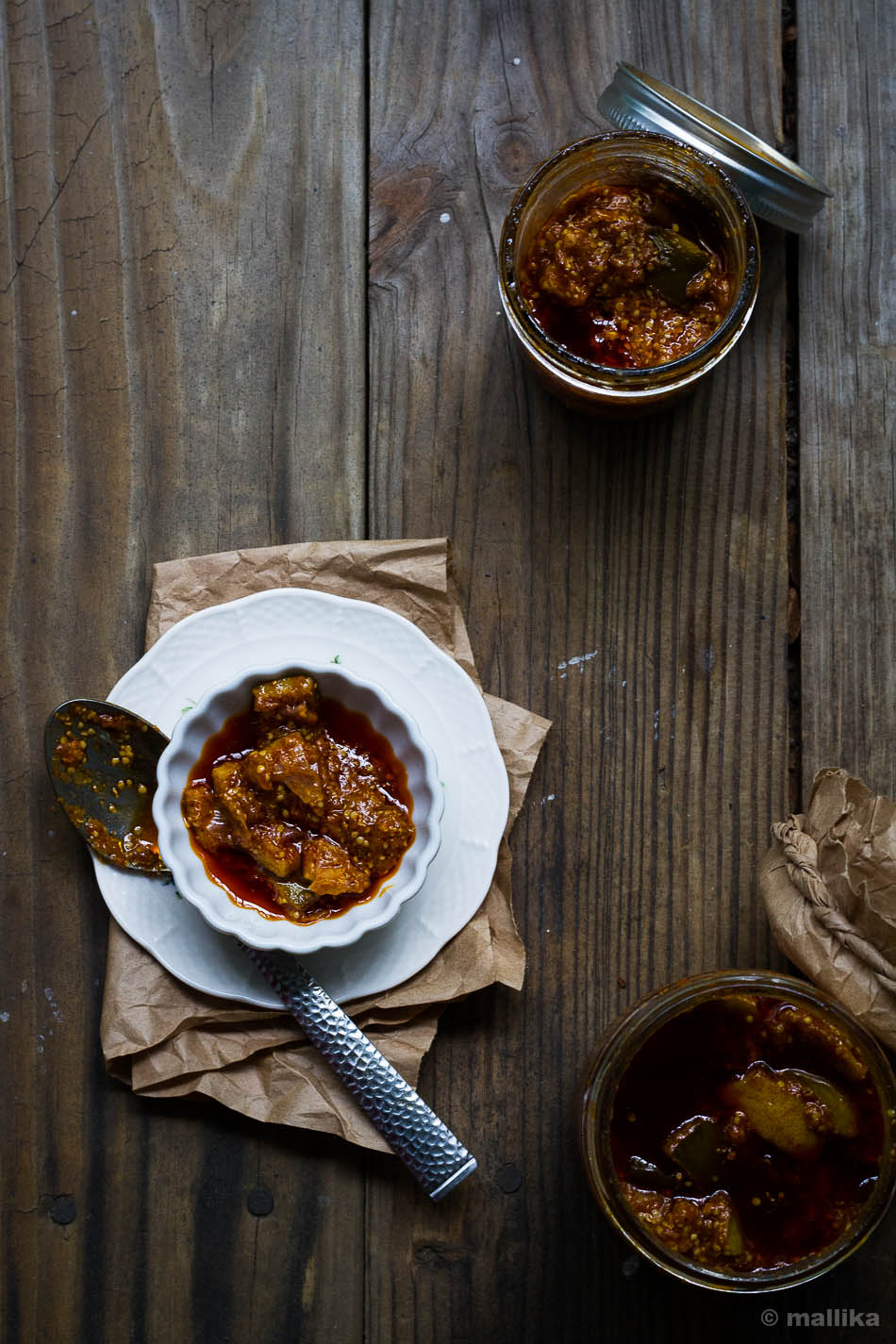
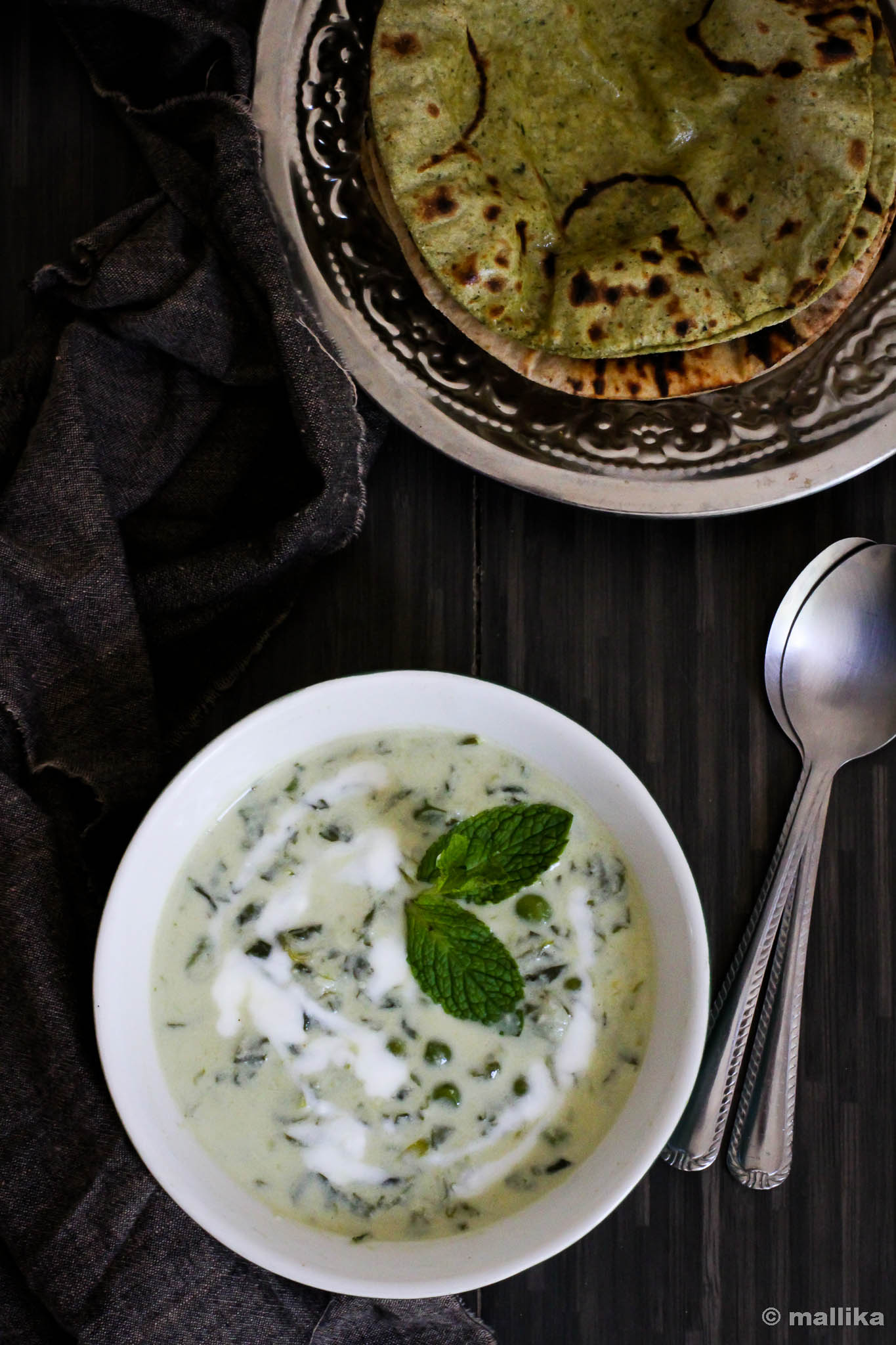
0 comments:
Post a Comment